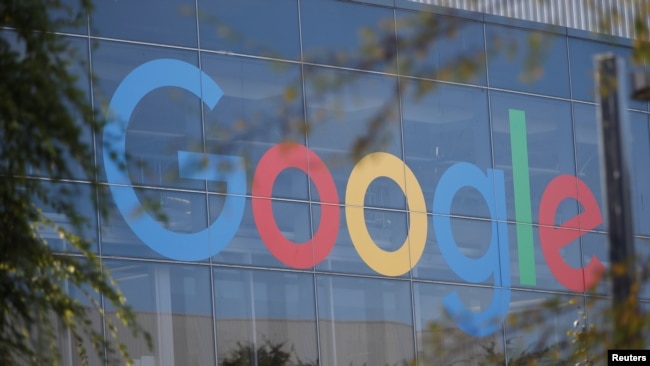アメリカではリモートがすでに当たり前だと思っていましたが、いったん落ち着けばオフィース再開予定だったんですね。
そのことにびっくり!!
毎日会社に行くって当たり前っていえば当たり前でしたが。。。。以前は。
でもリモートになって思ったんですよね、海外とのミーティングもZOOMなどで問題ないですし、授業もオンラインで出来ます。ただし、技術系は無理ですよね。
さて、今回もVOAで英語を学び、世界の今を知りましょう!!
オミクロンが企業の拠点再開計画を見直すきっかけに (和訳)
Omicron Variant Leads Companies to Rethink Plans to Reopen Offices
コロナウイルスの感染拡大が引き続き懸念されるため、多くの企業が従業員の職場復帰計画を延期しています。大きな懸念のひとつは、最近発見されたCOVID-19のオミクロン版(変種)です。
保健当局はオミクロンの変種をまだ研究しています。しかし、デルタ型よりも危険度が低いかもしれないという初期兆候があります。デルタは依然として、特に米国におけるコロナウイルス症例の大半を占めており、入院患者を出し続けています。
しかし、オミクロンをめぐる多くの未知の事態により、あらゆる規模の企業がオフィス再開の計画を見直すことになりました。
テクノロジー企業のグーグルや全米第2位の自動車メーカーであるフォード・モーターなどは、オフィス復帰の計画を再び延期しています。また、すでに従業員を呼び戻した企業も、マスクの着用など安全対策を強化することを検討しています。
イギリス、デンマーク、ノルウェー、スウェーデンの政府関係者も最近、オミクロンへの懸念から、できる限り自宅で仕事をするよう従業員に要請しています。
メタ社(旧Facebook)とライドシェアリング会社のリフトは最近、オフィスが来年初めに完全に再開される際に、従業員の復帰を遅らせることを発表しました。メタ社はまだ1月末に本社を開く予定だが、労働者が6月遅くまで復帰を遅らせることを許可する予定です。リフト社は、来年いっぱいは従業員のオフィスへの復帰を求めないとしています。
これらの動きは、多くの大企業が秋に労働者のオフィス復帰の要件を延期することを決定した後のことです。これらの決定は、デルタ変異種が蔓延したことと大きく関係しています。
ジェフ・レヴィン−シェルツ氏は、国際的な顧問会社であるウィリス・タワー・ワトソンに所属しています。同氏はAP通信に、1年半前には the work-from-home在宅勤務制度は短期間しか実施されないとほとんどの人が思っていたと語っています。「しかし、パンデミックは我々に多くの変化球を投げかけ、雇用主は機敏に対応し続ける必要があります。」
ウィリス・タワー・ワトソン社は、520万人の労働者を雇用する543社を対象とした調査を実施しました。その結果、在宅勤務を許可された従業員のうち、平均して34%が遠隔地にとどまっていることがわかりました。その結果、2022年の第1四半期には、その数は27%に減少することがわかりました。ただし、この調査はオミクロンのニュースが出る前に終了しています。
ローレンス・ゴスティン氏は、ワシントンDCにあるジョージタウン大学の公衆衛生専門家で、オミクロンに関する科学的情報は、企業がオフィス復帰計画を延期する決定を支持するほど十分ではないと思うとAP通信に語っています。
同氏は、今後もCOVID-19の症例の増減と同様に、新しい変異種が続出する可能性があると述べています。「あらゆるきっかけで正常な企業活動を阻害してはなりません」とゴスティン氏は語ります。
また、職場におけるウイルス感染の防止には、フェイスカバー、ワクチン接種、換気方法などの防護策を組み合わせることが非常に有効であると指摘しています。
それでも、新しい変異種の台頭は、一部の企業経営者に心理的な影響を及ぼしているようです。
「オミクロンのせいで、仕事場がCOVID以前の状態に戻ることはないと悟った」とジゼラ・ジラード氏は言います。彼女は、広告代理店クリエイティブ・シヴィライゼーションの社長である。同社の社員12名は、2020年3月からリモートワークを行っています。
「在宅勤務が、社員とその家族、さらにはクライアントの安全を守る可能性が高いことを実感しました」とジラードさんは話します。
彼女の会社では、秋に従業員をパートタイムでオフィスに戻す予定でした。しかし、デルタ変異種によって、その計画は来年初めまで延期されました。今、オミクロンが、その計画だけでなく、従業員を全く呼び戻さないかどうかについても彼女に再考させています。
Omicron Variant Leads Companies to Rethink Plans to Reopen Offices
Many companies are delaying plans to bring workers back to the office because of continuing concerns over the spread of the coronavirus. One big concern is the recently discovered Omicron version, or variant, of COVID-19.
Health officials are still studying the Omicron variant. But there have been early signs that it may be less dangerous than the Delta variant. Delta is still responsible for most coronavirus cases, especially in the United States, and continues to cause hospitalizations.
But a number of unknowns surrounding Omicron has led companies of all sizes to rethink plans to reopen their offices.
Technology company Google and the nation's second largest automaker, Ford Motor Company, are among those that have once again delayed their return-to-office plans. Other businesses that already brought workers back are considering adding extra safety measures like requiring masks.
Officials in Britain, Denmark, Norway and Sweden also have recently asked employees to work from home if they can because of concerns about Omicron.
Meta, formerly known as Facebook, and ridesharing company Lyft recently announced they were letting workers delay their return when offices fully reopen early next year. Meta still plans to open its headquarters at the end of January but will permit workers to delay their return to as late as June. Lyft says it will not require workers to come back to its offices through all of next year.
The moves come after many big companies decided to postpone requirements for workers to return to offices in the autumn. Those decisions were largely linked to the spread of the Delta variant.
Jeff Levin-Scherz is with the international advisory company Willis Tower Watson. He told The Associated Press that 18 months ago, most people thought the work-from-home policies would only be in place for a short time. “But the pandemic has thrown us many curves, and employers need to continue to be nimble.”
Willis Tower Watson carried out research involving 543 companies that employ 5.2 million workers. The research showed that on average, 34 percent of employees permitted to work from home remain remote. The results found that that number would drop to 27 percent by the first quarter of 2022. However, the research was completed before news of Omicron came out.
Lawrence Gostin is a public health expert at Georgetown University in Washington D.C. He told the AP he does not think there is enough scientific information on Omicron to support company decisions to delay their return-to-office plans.
He said there is likely to be a continuing series of new variants, as well as rises and falls in COVID-19 cases going forward. “We shouldn’t disrupt normal business activity at every possible trigger,” Gostin said.
He noted that a combination of protective measures – such as face coverings, vaccinations and ventilation methods – are highly effective at preventing virus spread in the workplace.
Still, the rise of new variants seems to be having a psychological effect on some business owners.
“Omicron has made me realize work life will never return to the way it was pre-COVID,” said Gisela Girard. She is president of Creative Civilization, an advertising agency. The company’s 12 employees have been working remotely since March 2020.
“It made me realize how working from home is likely to keep employees, their families and also our clients safe,” Girard said.
Her company had planned to bring workers back to the office part time in the autumn. But the Delta variant delayed those plans until early next year. Now, Omicron has her reconsidering not only those plans, but also whether to bring the employees back at all.
Words in This Story
curve – n. something that is surprising or unexpected and can affect other things
nimble – adj. able to move quickly and easily
remote – adj. happening a far distance away
disrupt – v. to interrupt something and stop it from continuing as it should
trigger – n. an event or situation that makes something else happen
ventilation – n. a system that permits fresh air to enter and move through a room, building, etc.
